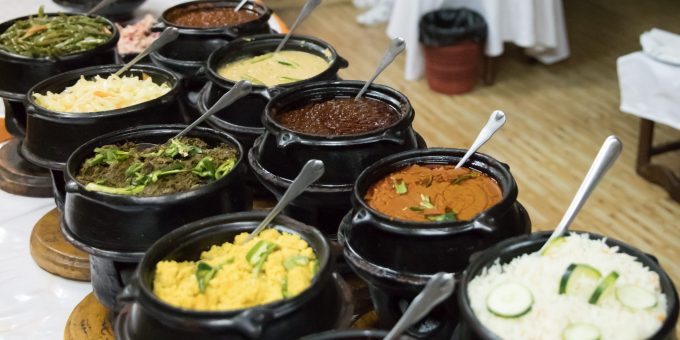
Image via Ninara, https://flic.kr/p/21NfB9p
The Racist Palate
Elite cultural fields often lack diversity, and the fine dining field is no exception. Though we know that marginalized producers of cultural goods, such as artists and chefs, are often excluded from positions of prestige, much less is known about how racial inequality specifically affects how critics, and even the public, evaluate their products. In Social Problems, Gillian Gualtieri reports on her interviews with 120 critically recognized chefs in New York City and the San Francisco Bay Area and her analysis of 1,380 Michelin restaurant reviews.
In “Discriminating Palates: Evaluation and Ethnoracial Inequality in American Fine Dining,” Gualtieri compares what she terms Ethnic restaurants and Classic and Flexible restaurants; the culinary products of the former are associated with non-Whiteness, while those of the latter are associated with Whiteness. Ethnic restaurants, she explains, are systematically devalued by the criteria of authenticity, which relies on subjective interpretation more than standardized measures. Classic and Flexible restaurants, on the other hand, are assessed in relation to standardized institutions of American fine dining. In interviews, Classic and Flexible chefs describe occupying a position of knowledgeable authority over their craft and valuing the opinion of formal institutions like Michelin. By contrast, for their restaurants to survive, chefs at Ethnic restaurants consistently discuss catering to diners’ “inconsistent, and often uninformed,” expectations based on previous experiences outside of the context of fine dining.
The findings reveal how inequality is reproduced through an assumption that White restaurants are the standard against which all U.S. restaurants should be evaluated. The ambiguous criteria of authenticity ensures that Ethnic restaurants are uniquely constrained by the inconsistent expectations of diners and critics. As a result, they tend to earn fewer stars and charge lower prices. Inequitable evaluation processes produce a system of value based on racial hierarchy, inflecting the ways chefs and critics understand and engage with their critical and creative work.
